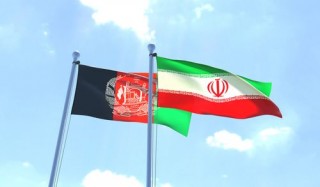How will Iran deal with Afghanistan?
In this article Ahmad Abdul-Rahman talks about how Iran will deal with the US withdrawal from Afghanistan and the rise of the Taliban.
Afghanistan has fallen into the hands of the Taliban. The announcement by the US of the complete withdrawal from Afghanistan at the end of August precipitated this. The repercussions will be felt in the Middle East for a long time to come. Iran is one of the countries concerned with what is happening inside Afghanistan.
In Iran, the geopolitical environment has changed in recent months, especially with the new president Ebrahim Raisi taking office in June. There are also many challenges. in the face of Iranian security and interests.How does Tehran prepare for what is to come in Afghanistan?
Iranian strategy in Afghanistan
In general, Iran has pursued a multi-track strategy in Afghanistan similar to that used in Iraq. It was based on trying to influence the formation of the central government and exercise influence over it. Iran also provided support to non-state armed factions that opposed the US forces there. Meanwhile, Iran has worked to restore some influence in western, central and northern Afghanistan. To exercise influence and power, Iran has been providing support to the Afghan government and support for the campaigns of Afghan candidates loyal to it. Iran has also bolstered its relationship with the Taliban by providing weapons and training to the movement's fighters, according to US State Department reports on international terrorism.
How does Iran see the US withdrawal?
When it comes to the US withdrawal from Afghanistan, Iran oscillates between two positions. Some Iranian media praise the Taliban and the change of the movement's thinking compared to Al-Qaeda and ISIS. Others criticise the US withdrawal and consider it irresponsible. Nonetheless, in light of its limited options in dealing with the Afghan crisis, Tehran has adopted a pragmatic approach that seeks to achieve a balance in its relations with the two sides.
Iran has improved its relationship with the Taliban, and the former Iranian Foreign Minister Mohammad Javad Zarif, has publicly welcomed Taliban officials to Tehran twice in recent months. The Taliban delegation also met with senior security officials.
Although Iran celebrated the American withdrawal from Afghanistan, it considers this a defeat for the US, which has always aimed to change some regimes by military force. Iran was among the countries on the list of US terrorist organisations, since the administration of former US President George W. Bush. Iran also considers that the US withdrawal from Iraq to be a power vacuum that should be filled.
Despite communication between Iran and the Taliban, there is growing concern that the Taliban's success in re-establishing the Islamic Emirate of Afghanistan could strengthen terrorist groups such as al-Qaeda and ISIS- which exist in the Khorasan province. If these groups were to continue their activities with implicit or overt support from the Taliban, a new wave of violence and insecurity could unfold along Iran's eastern border.
Furthermore, Tehran closed its consulate in the Afghan province of Balkh, and deployed troops and military equipment there. These forces, which include elements from the regular army and the Revolutionary Guards, have taken a position of full combat readiness – positioned along 900 km of the common border with Afghanistan.
The Afghan situation is on Ebrahim Raisi's agenda
In July 2020, the Iranian Foreign Ministry hosted the first significant peace talks in months between high-level Afghan delegations and Taliban officials. The strength of the Taliban movement was certainly the second most important foreign policy issue to be addressed by the new Iranian president, after the revival of the Iranian nuclear agreement.


Comments